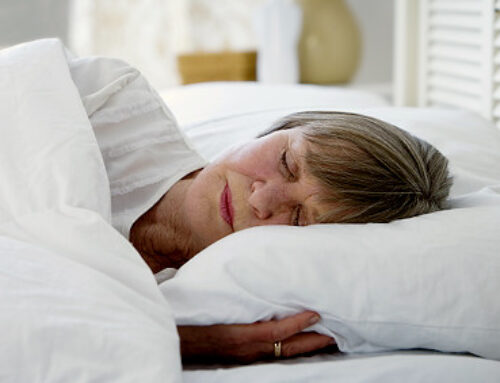Painless sleep and rest are vital as people become older. According to research, inadequate or poor-quality sleep has been linked to high blood pressure, cardiovascular plaque accumulation, and higher cholesterol levels. Thus, a healthy rest on comfortable bed accessories always follows healthy adult living.
As part of patient care, people are responsible for making those bedridden seniors as happy and comfortable as possible. However, they are more likely to develop bedsores. Bedsores are ulcers that form on parts of the skin because of prolonged pressure from laying in bed, seating in a wheelchair, or wearing a cast for an extended period.
Bedsores are pressure sores, stress ulcers, or decubitus ulcers.
This article discusses the common causes, symptoms, and ways on which bedridden patients can avoid getting bed sores while providing you with the best recommendations to protect your skin.
Common Cause of Bedsores
When the blood flow to the skin is cut off for more than 2 to 3 hours, bedsore develops. Bedsore begins as a red, painful patch that gradually turns purple as the skin dies. If the skin is not treated, it might burst open and get infected. The danger increases if the individual is not adequately rotated, positioned, or given sufficient diet and skincare. Diabetes, circulatory issues, and malnutrition are all risk factors.
Constant pressure on any portion of the body can reduce blood flow to the tissues. The delivery of oxygen and other nutrients to tissues is dependent on blood flow. Skin and adjacent tissues are harmed and may perish if these critical nutrients are not provided.
Bedsore can develop into a deep wound. It has the potential to penetrate the muscle and bone. It generally takes a long time to recover because bedsores can take even years, depending on the severity of bedsores, their physical condition, and underlying conditions (such as diabetes). They may require surgery to aid in the healing process.
This skin problem mainly occurs in some of the essential body parts, such as:
- Buttocks area (on the tailbone or hips)
- Heels of the feet
- Shoulder blades
- Back of the head
- Backs and sides of the knees
Signs of Bedsores
Bedsores are classified into four stages, from mild to severe. They are as follows:
- Stage 1. The skin region appears red and is heated to the touch. The spot may have a purple or blue tinge if you have darker skin. The patient may also feel that it burns, aches, or itches.
- Stage 2. The skin seems more injured, with an open sore, scrape, or blister. The individual complains of severe discomfort, and we may discolor the skin around the incision.
- Stage 3. The region displays a crater-like look because of damage under the skin’s surface.
- Stage 4. The region has been seriously wounded, and a large wound is present. Muscles, tendons, bones, and joints may all be affected. At this point, infection is a substantial concern.
Ways to Prevent Bedsores
We can avoid bedsores by checking the skin every day for patches of redness (the earliest symptom) and paying attention to bony regions. Other ways of preventing bedsores and keeping existing sores from worsening include:
- Repositioning or turning every two hours. Protecting mattresses with positioning underpads may be a good option for bedridden patients who suffer from incontinence since they have extra strength to endure continuous turning and repositioning.
Necessary equipment can assist the patient with repositioning. If the patient has sufficient upper body strength, they can use a self-repositioning device such as a bed trapeze. If the patient requires assistance, use bedsheets to elevate and reposition the patient to avoid friction and shearing.
- Also, elevate the patient’s bed as needed. If you may lift the hospital bed at the head, limit the elevation to 30 degrees. It prevents the patient from sliding down in bed, which can cause skin harm.
You can also consider a specialized mattress. Unique cushions, a foam mattress pad, sheepskin, an air-filled bed, or a water-filled mattress are just a few of the goods that may aid posture, reduce strain, and protect sensitive regions. Low air loss mattress designs have been shown to lower the probability of developing a pressure ulcer.
- Keeping the skin clean and dry to provide optimum skincare using some skincare accessories. By monitoring the skin condition, one can avoid pressure sores and discover sores early on, which can be treated before they get worse.
Further, hydration is essential for keeping healthy skin. Learn how much to drink and the symptoms of dehydration to keep on top of things.
- Providing adequate nourishment since bedsores cannot cure without sufficient calories, vitamins, minerals, water, and protein, regardless of how well you care for the sore. Furthermore, it may recommend dietary changes or supplements such as nutrition shakes, vitamin C, Omega 3 fatty acids, and zinc.
Meanwhile, patients with limited movement or substantial weakness may require eating assistance to obtain enough nourishment. They trust you as their caregiver to be there for them.
How are bedsores treated?
Your healthcare provider and wound care team will provide you with the best treatment for bedsores with you based on the severity of the problem. Once the skin has been damaged, treatment may become more complicated and may entail the following:
- Reducing the amount of pressure on the afflicted region
- Using medicated gauze or other wound dressings to protect the wound
- Cleaning the wound
- Healthy nutrition
- Removing the damaged or dead tissue (debridement)
- Taking up medicines such as antibiotics to treat infections
Final Thoughts
The greatest joy in adulthood is having a good night’s sleep and having healthy skin. So, please do not make any concessions for it. Their health, physical needs, and lifestyle habits are the most important factors to prioritize. We care for the elderly at AvaCare Medical.
You have various options and the finest deals for your loved ones, from comfortable beds, mattress overlays, skincare, and first-aid. We’ve got everything for you! We are available 24/7 at 1-877-813-7799 or by email at info@avacaremedical.com for more information on our fantastic deals.





